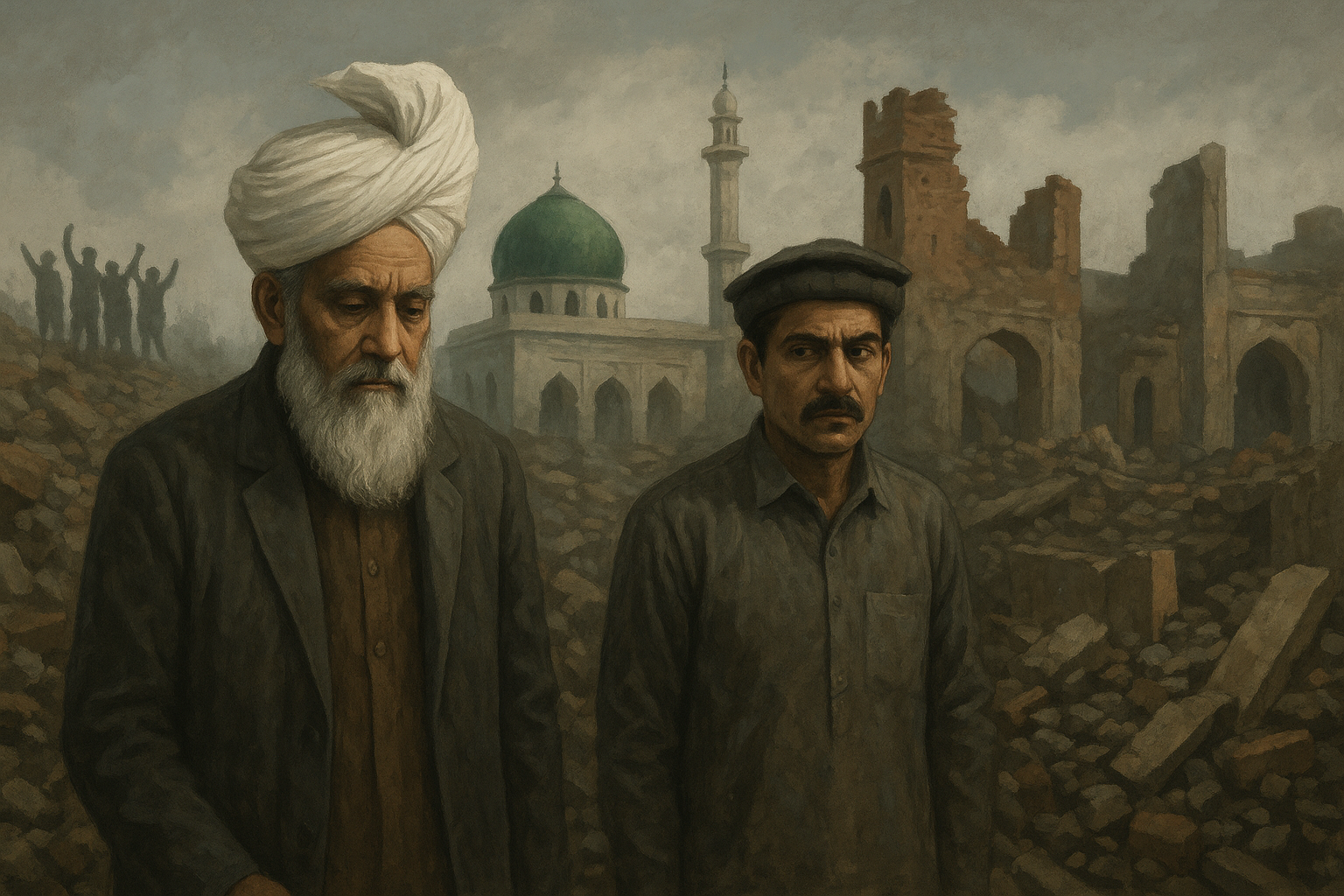In March this year, in Gujranwala, police—accompanied by members of the hardline Tehreek-e-Labbaik Pakistan (TLP)—tore down the minarets of a 120-year-old Ahmadi place of worship and detained five men who tried to resist.
Community elders pointed out that the building predated the 1984 law restricting Ahmadi religious expression, yet authorities insisted its minarets were “unlawful.” The episode illustrates how a community once integral to Pakistan’s founding story is now subject to systematic erasure in its own homeland.
From Constitutional Amendment to Ordinance XX
The turning point came in September 1974, when Pakistan’s Parliament adopted the Second Amendment to the Constitution. It defined a Muslim as one who believed in the “absolute and unqualified finality of the Prophethood of Muhammad,” thereby declaring Ahmadis non-Muslim.
A decade later, in April 1984, General Zia-ul-Haq reinforced this exclusion through Ordinance XX, amending the Pakistan Penal Code to insert Sections 298-B and 298-C. These provisions criminalised core Ahmadi religious practices—such as describing their places of worship as mosques or using Islamic epithets and greetings—with penalties of up to three years’ imprisonment. In effect, the ordinance policed identity, language, and worship itself, turning everyday expressions of Ahmadi faith into potential criminal offences.
From Nation-Builders to Legal “Others”
Ahmadis were once central to Pakistan’s early diplomacy, science, and statecraft. Their subsequent exclusion was less about theology than politics. Successive governments—whether responding to sectarian unrest, clerical pressure, or authoritarian Islamisation—converted social prejudice into statutory discrimination.
The 1974 amendment, passed under a civilian government, marked the formal beginning of exclusion. The 1984 decree, imposed under military rule, entrenched it further, transforming prejudice into a codified hierarchy of citizenship.
Zafarullah Khan and Abdus Salam: Erased Legacies
Two towering figures exemplify this paradox.
Sir Muhammad Zafarullah Khan, an Ahmadi jurist and statesman, was Pakistan’s first Foreign Minister and went on to preside over both the UN General Assembly and the International Court of Justice (ICJ)—a distinction unmatched by any other Pakistani. He was instrumental in articulating Pakistan’s early foreign policy, championing decolonisation and Palestinian self-determination at the UN. Yet, despite his role in shaping the young nation’s international image, Pakistan later redefined him as a non-Muslim.
Physicist Dr Abdus Salam, Pakistan’s first Nobel laureate, shared a similar fate. Winner of the 1979 Nobel Prize in Physics for his role in formulating the electroweak theory, Salam was also an architect of Pakistan’s scientific institutions. But after the 1974 amendment, he left Pakistan in protest. Even in death, intolerance pursued him: local authorities erased the word “Muslim” from his gravestone, leaving a conspicuous blank where it once read “First Muslim Nobel Laureate.”
What the Law Criminalises
The legal framework is both sweeping and vague. Section 298-B prohibits Ahmadis from using Islamic epithets, titles, or descriptions for their religious figures and places of worship. Section 298-C goes further, criminalising anyone who “poses as a Muslim,” calls their faith Islam, or propagates it.
Human rights organisations and legal scholars concur that these provisions enable selective enforcement and have created a permanent atmosphere of fear. Ordinary religious vocabulary—greetings, inscriptions, or descriptions of worship—can invite prosecution. As the UK Home Office’s 2025 country note observes, the rules chill speech and curtail worship, extending into contemporary practices from identity documents to online censorship.
Erasure in Law and Practice
Pakistan’s treatment of Ahmadis is not symbolic—it is material and visible. It is the scraped word on Dr Salam’s gravestone. It is the ban on calling a prayer hall a mosque. It is the official silence around Zafarullah Khan’s international achievements. Amnesty International has documented how prosecutions multiplied after 1984, embedding this discrimination into the machinery of law enforcement.
Occasionally, the state gestures towards restitution—such as renaming a research centre in Salam’s honour—but these symbolic nods coexist with the unchanged legal architecture that continues to criminalise Ahmadi religious identity. Without genuine reform, such gestures risk appearing as cosmetic performances of inclusion within a framework built for exclusion.
A Constitutional Test
Pakistan’s treatment of Ahmadis raises a fundamental question: can a diverse society uphold equality when its constitution itself encodes exclusion? The Second Amendment redefined citizenship through religion, while Ordinance XX turned belief into a matter for police enforcement. Together, they created a precedent where any unpopular group could be stripped of equal rights.
For Pakistan, this legacy is not just about one community—it is about the state’s ability to protect pluralism. Unless the discriminatory laws are repealed, the country risks embedding permanent inequality into its national identity.

